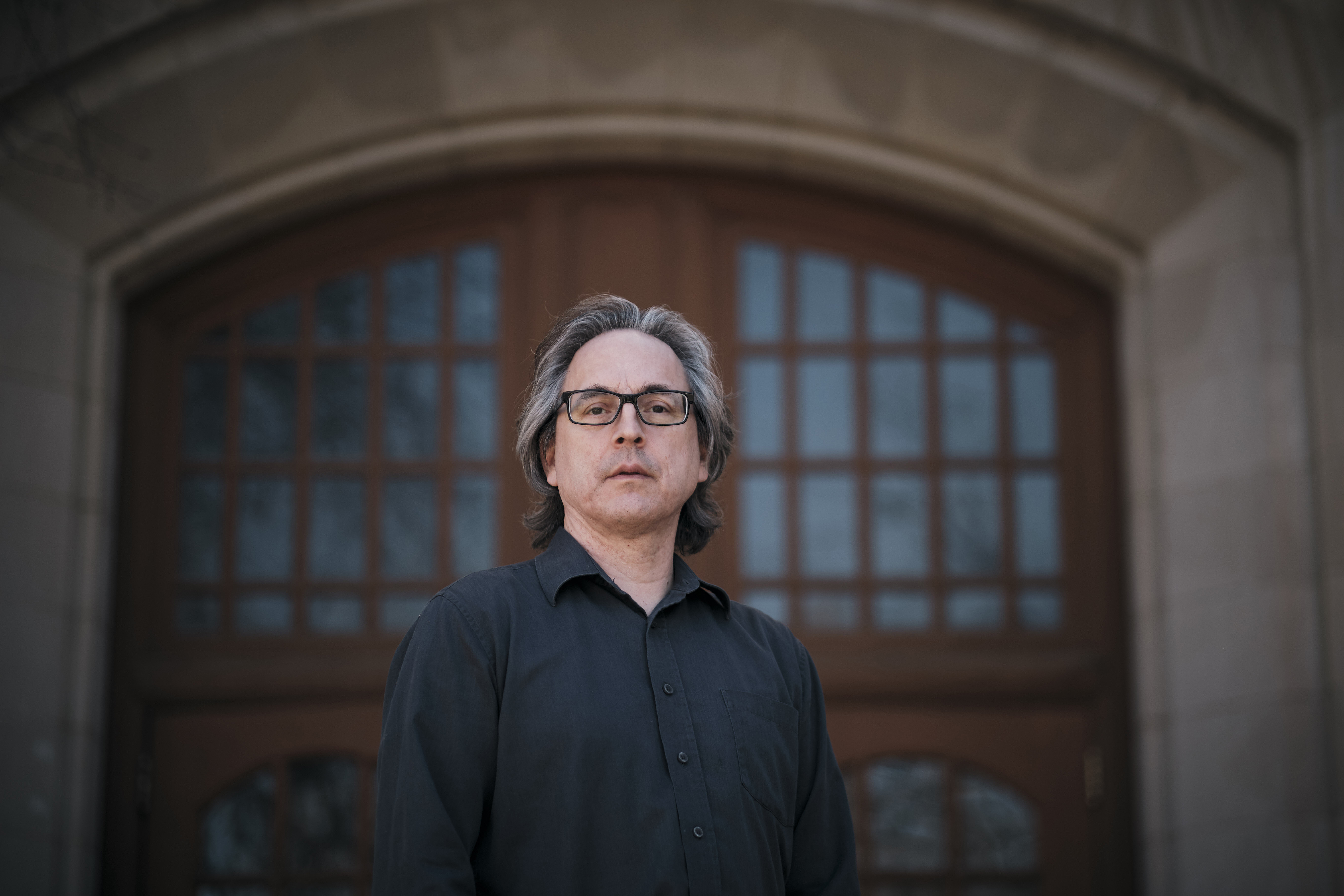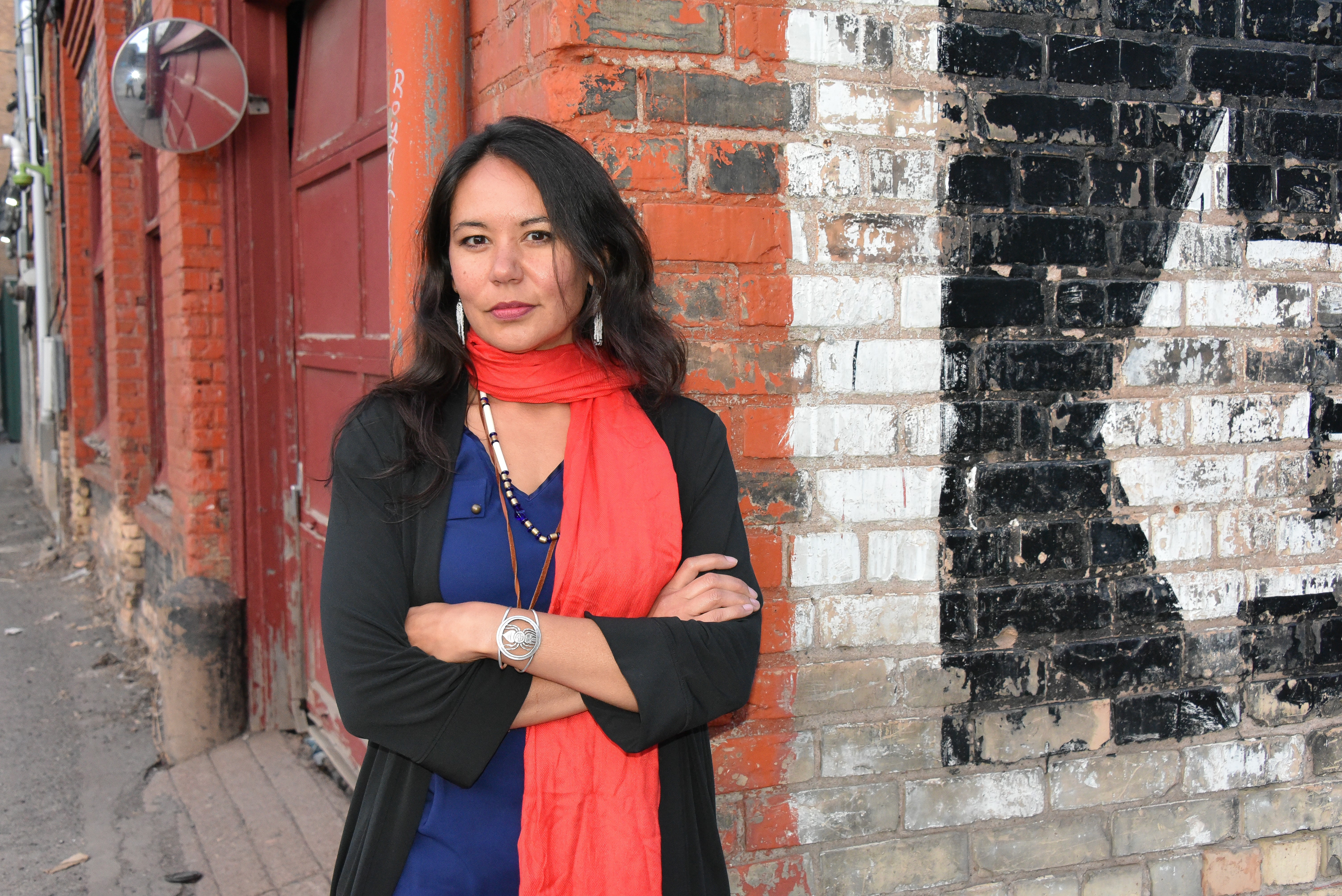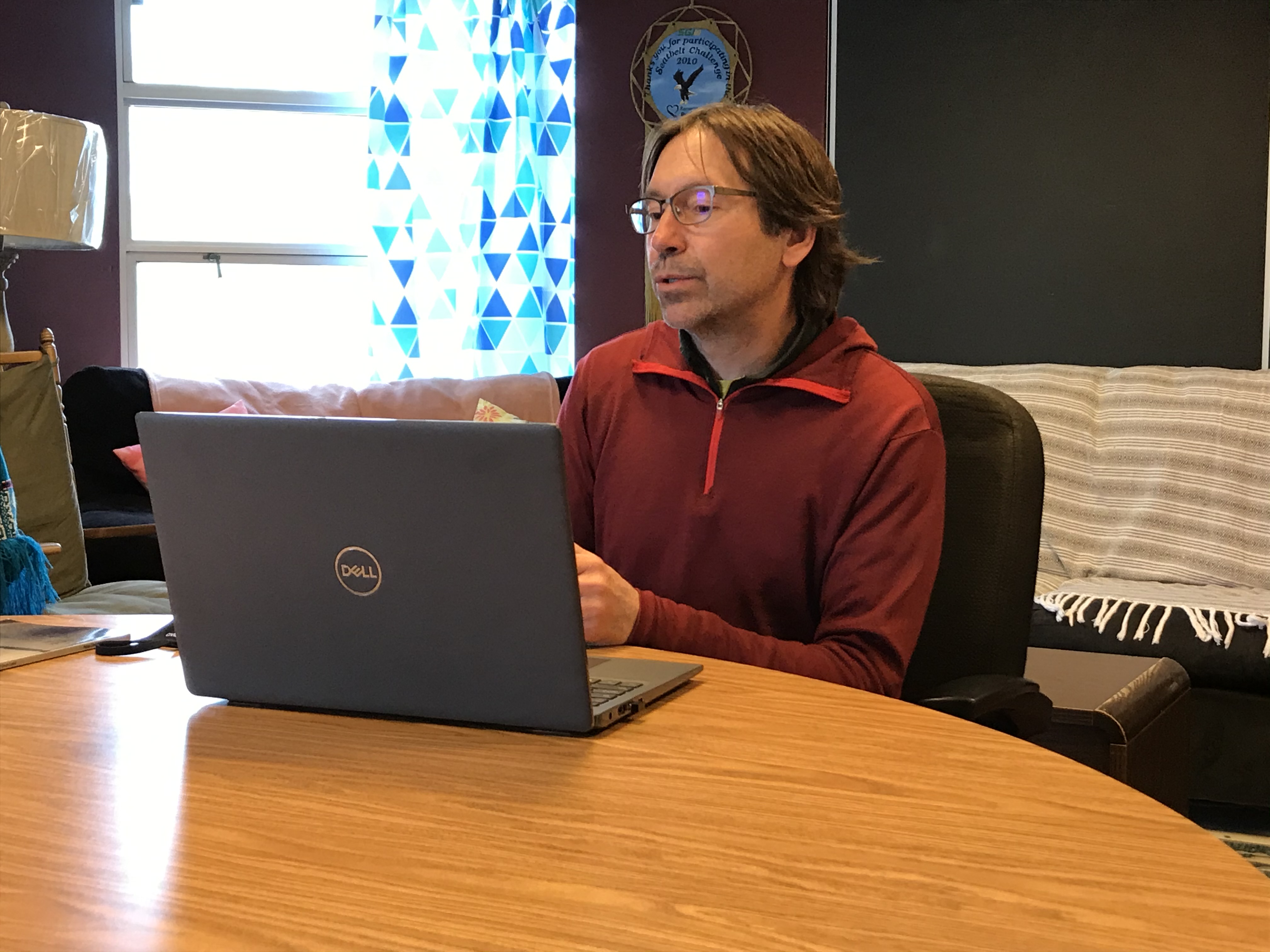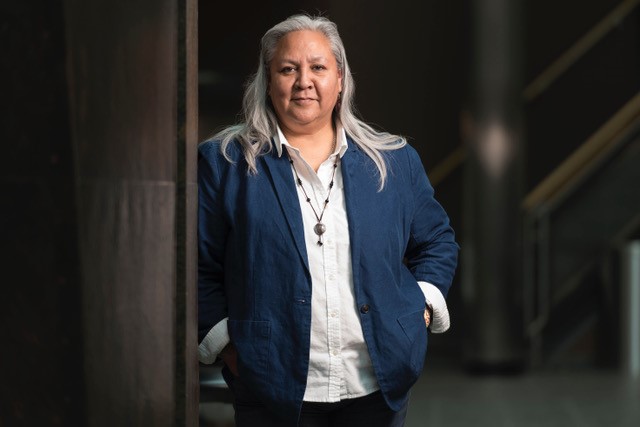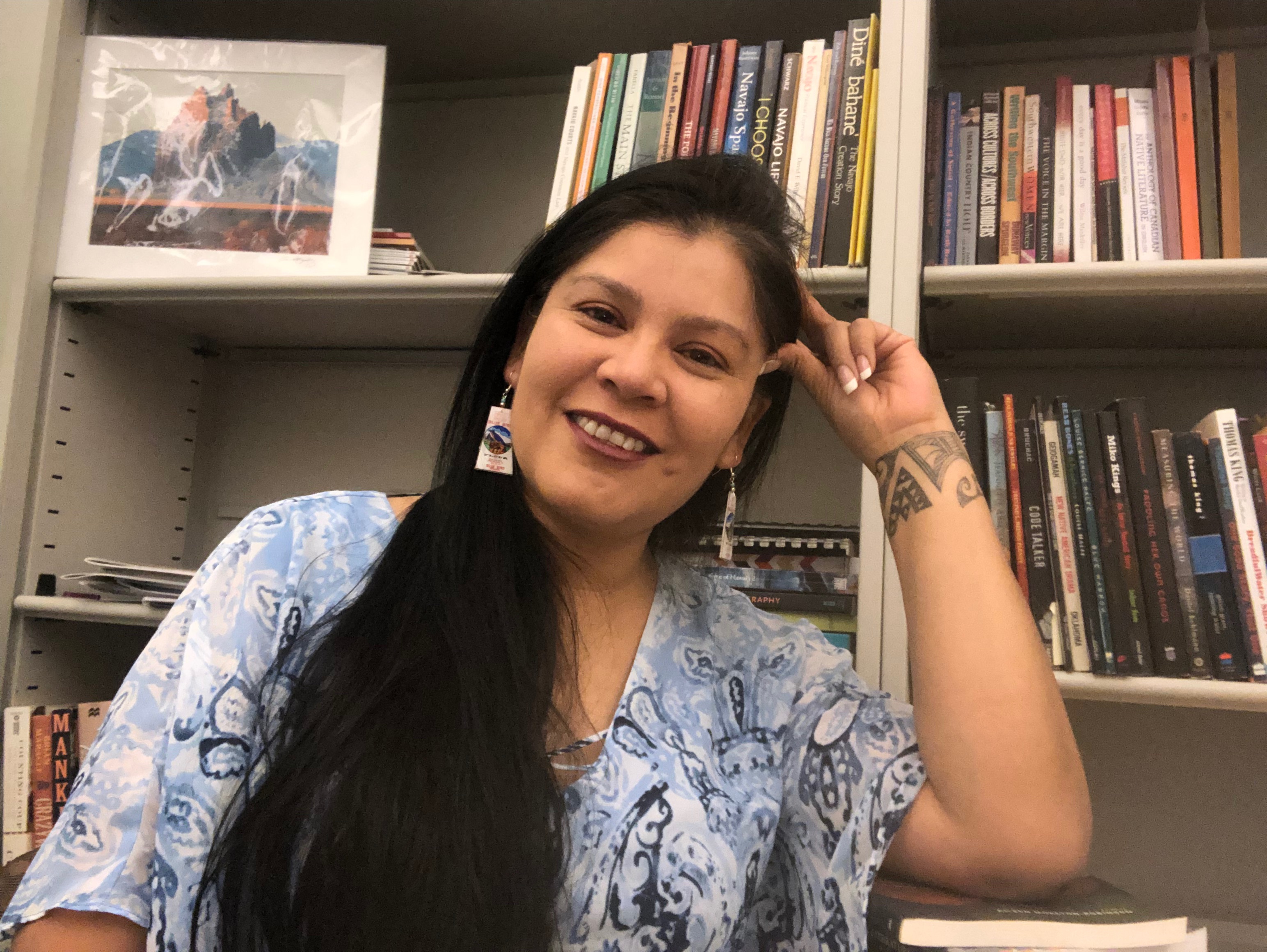Adjunct Faculty
|
|
Robert Alexander InnesDr. Robert Alexander Innes is a member of Cowessess First Nation and an associate professor in the Department of Political Science and the Indigenous Studies Program at McMaster University. He spent many years at the University of Saskatchewan. He first came in 1996 as a M.A. student (graduated in 2000). He then taught as sessional instructor for several years and in 2006 was hired as a faculty member and served in various administrative positions (undergrad chair, graduate chair, and department head) until he left in 2021. He is the author of Elder Brother and the Law of the People: Cowessess First Nation and Contemporary Kinship (University of Manitoba Press, 2015, and is co-editor of The Arts of Indigenous Health and Wellbeing (University of Manitoba Press, 2021) Indigenous Celebrity: Indigenous Entanglements with Fame (University of Manitoba Press, 2021), Global Indigenous Health: Reconciling the Past, Engaging the Present, Animating the Future. (University of Arizona Press, 2018), Indigenous Men and Masculinities: Legacies, Identities, Regeneration (University of Manitoba Press, 2015), and Expressions in Canadian Native Studies (University Extension Press, University of Saskatchewan, 2000). |
|
|
Shalene JobinDr. Shalene Jobin, BCom, MA, PhD is an Associate Professor in the Faculty of Native Studies and Director of the Indigenous Governance and Partnership program at the University of Alberta. Shalene is Cree from her mother (Wuttunee family) and Métis from her father (Jobin family) and is a member of Red Pheasant Cree First Nation (Treaty Six). Shalene is widely published and is involved in numerous community-centred research initiatives, including being the Co-Lead with Dr. Hadley Friedland of the Wahkohtowin Law & Governance Lodge, a new partnership between the Faculty of Native Studies and the Faculty of Law to provide law and governance supports to Indigenous communities |
|
|
Michelle Johnson-JenningsDr. Michelle Johnson-Jennings, a Choctaw Nation-enrolled tribal member, serves as a UW full professor and director of the division of environmentally based health and land-based healing at the Indigenous Wellness Research Institute. She currently serves as the international lead for the COVARR-Net Indigenous Pillar, CIEDAR, which seeks to reduce transmission of COVID-19 variants among Indigenous communities. She holds a joint/affiliate appointments at the University of Saskatchewan, University of Colorado’s School of Public Health, and the University of Waikato. As a clinical health psychologist, her therapeutic expertise lies in working with Indigenous communities and decolonizing healing approaches. She has partnered, and received large scale funding, with many international and national Indigenous nations, organizations and communities. Together they have co-developed health interventions entrenched in ancestral guidelines to encourage a renewed commitment to health and the revitalization of land-based healing practices. Dr. Johnson-Jennings recently served as the Canada Research Chair for Indigenous Community Engaged Research at the University of Saskatchewan, founded and directed the Research for Indigenous Community Health Center at the University of Minnesota, and was awarded a U.S. Fulbright Scholarship to conduct research in Aotearoa/New Zealand. She has been invited to present her research at numerous professional conferences held in Italy, Czech Republic, Australia, New Zealand, Mexico, Canada and the U.S. She received a Biomedical Research Excellence postdoctoral fellowship with the University of Montana, her doctoral degree from the University of Wisconsin-Madison, a master’s degree from Harvard University, and a BS from the University of Oklahoma. |
|
|
Sheldon KrasowskiDr. Sheldon Krasowski was born in Treaty Six territory in Saskatoon and attended the University of Saskatchewan where he received a BA with a major in Indigenous Studies in 1995. In 1998 he received an MA in Indigenous Studies from Trent University and completed the thesis “A Numiany” The Prayer People and the Pagans of Walpole Island First Nation.” In 2011, he received a PhD in history from the University of Regina for the dissertation, “Mediating the Numbered Treaties: Eyewitness Accounts of the Numbered Treaties Between the Crown and Indigenous Peoples, 1871-1876.” This research became the basis for No Surrender: The Land Remains Indigenous which was published by the University of Regina Press in 2019 and includes a foreword by Dr. Winona Wheeler. Dr. Krasowski has taught in both history and Indigenous Studies departments at First Nations University of Canada; Vancouver Island University; the University of Saskatchewan; Blue Quills First Nations College; the University of Calgary; and Athabasca University. He has completed research for the Assembly of Manitoba Chiefs, the Metis Nation of Ontario, and is currently a co-investigator on a research project with the Montreal Lake Cree Nation on the Treaty 6 Adhesion of 1889. Sheldon is currently the research coordinator at the Office of the Treaty Commissioner in Saskatoon. |
|
|
Sarah NickelDr. Sarah Nickel (Ph.D Simon Fraser University) is Tk'emlupsemc (Kamloops Secwépemc), French Canadian, and Ukrainian, and is currently an associate professor of History at the University of Alberta after five years with the Department of Indigenous Studies at the University of Saskatchewan. Her work focuses on twentieth century Indigenous histories, particularly political activism and gendered analysis. She has published in BC Studies, the Canadian Historical Review, and American Indian Quarterly. Her first book, Assembling Unity: Indigenous Politics, Gender, and the Union of BC Indian Chiefs was published with UBC Press in 2019 and recently won the Canadian Historical Association prize for the best scholarly book in Indigenous History. She also has a co-authored edited collection In Good Relation: History, Gender, and Kinship in Indigenous Feminisms with the University of Manitoba Press, released in May 2020. |
|
|
Raven SinclairDr. Raven Sinclair (she/her), BA, BSW, MSW, PhD is Cree/Nêhiyâw from George Gordon First Nation, Treaty 4, Saskatchewan. Raven is a Professor of Social Work with the University of Regina Faculty of Social Work in the Saskatoon Campus, appointed in 2005. Raven’s research interests include Indigenous child welfare and youth bullying and suicide, as well as racism, lateral violence, and trauma recovery. Raven has edited three collection on Indigenous social work, social policy analysis, and settler colonialism. She has written extensively on the Indigenous child “removal” system in Canada. She is a published poet, public speaker, and film maker. Her documentary on the Sixties Scoop “A Truth to be told” (2017) can be found on YouTube, and her feature film “Trouble in the Garden” (2018) is available on iTunes and CBC Gem. |
|
|
Renae Watchman"Tódich’íi’nii éínishłị dóó Kinya’áanii báshíshchíín. Tsalagi éí da shichei dóó Táchii'nii éí da shinálí." Dr. Watchman (Diné) is Bitter Water born for Towering House. She is Bird Clan (Cherokee) from her chei (maternal grandpa) and Red Running Through the Water from her nálí (paternal grandpa). She is a Diné (Navajo), whose family is originally from Shiprock, New Mexico. Commencing July 1, 2021, she will be an associate professor in the Indigenous Studies Program, cross-appointed to English and Cultural Studies at McMaster University, which is located on the traditional territories of the Haudenosaunee and Mississauga Nations and, within the lands protected by the “Dish With One Spoon” wampum agreement. From 2010-2021, she worked in the Departments of English, Languages, and Cultures and Indigenous Studies at Mount Royal University. Dr. Watchman teaches courses in Indigenous literary studies and Indigenous film (local and global). Dr. Watchman is finalizing a long-term project, tentatively titled: Tsé Bitʼaʼí (The Winged Rock): From Dislocation to Restoration in Visual & Literary Storytelling, which is a monograph about the monolith that distinguishes her home community. Situated in northwest New Mexico, within the Four Sacred Mountains, Tsé Bitʼaʼí means “winged rock” or “rock with wings” and is known as Shiprock Peak (or just Shiprock) to locals. Tsé Bitʼaʼí, the matriarchal monolith, is at the cultural and storied center of the ancient Anasazi and the contemporary Diné and is also a prominent landmark of “The Land of Enchantment.” The oral stories about Tsé Bit’a’í are pedagogical and experiential, and these teachings from creation can be mapped onto Tsé Bitʼaʼí, giving historical and cultural context to Diné presence and resilience amid ongoing colonialism. |


